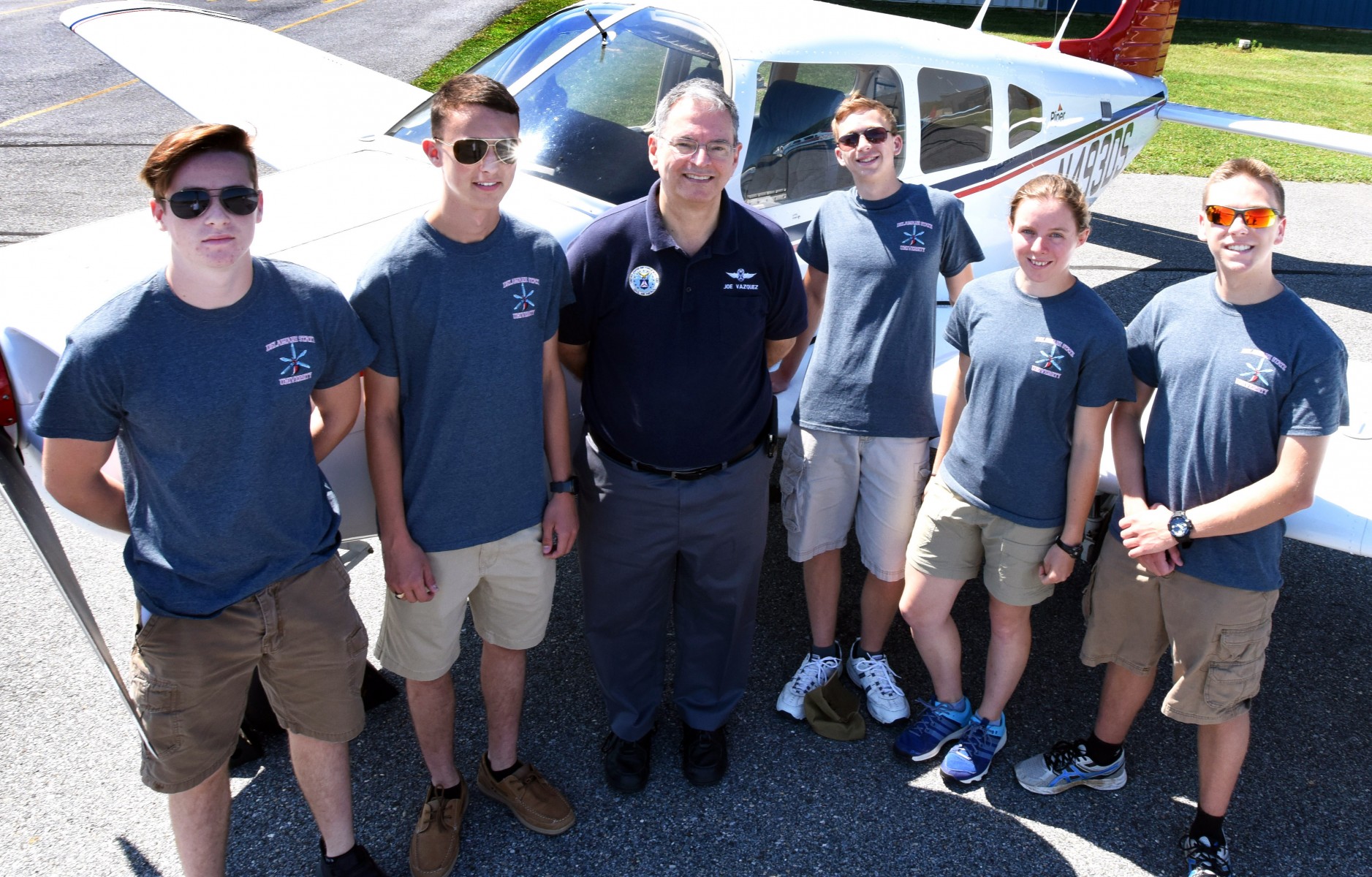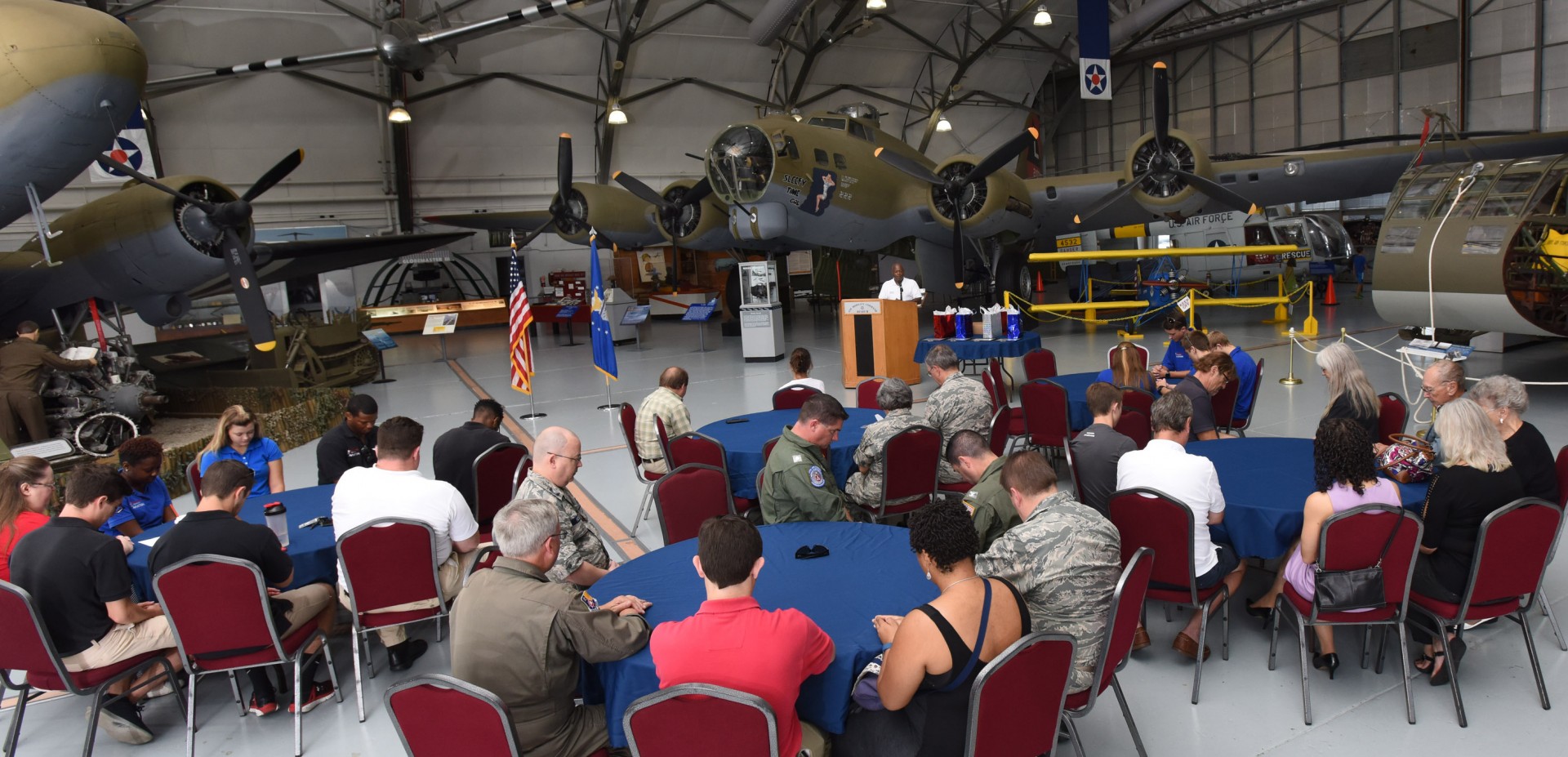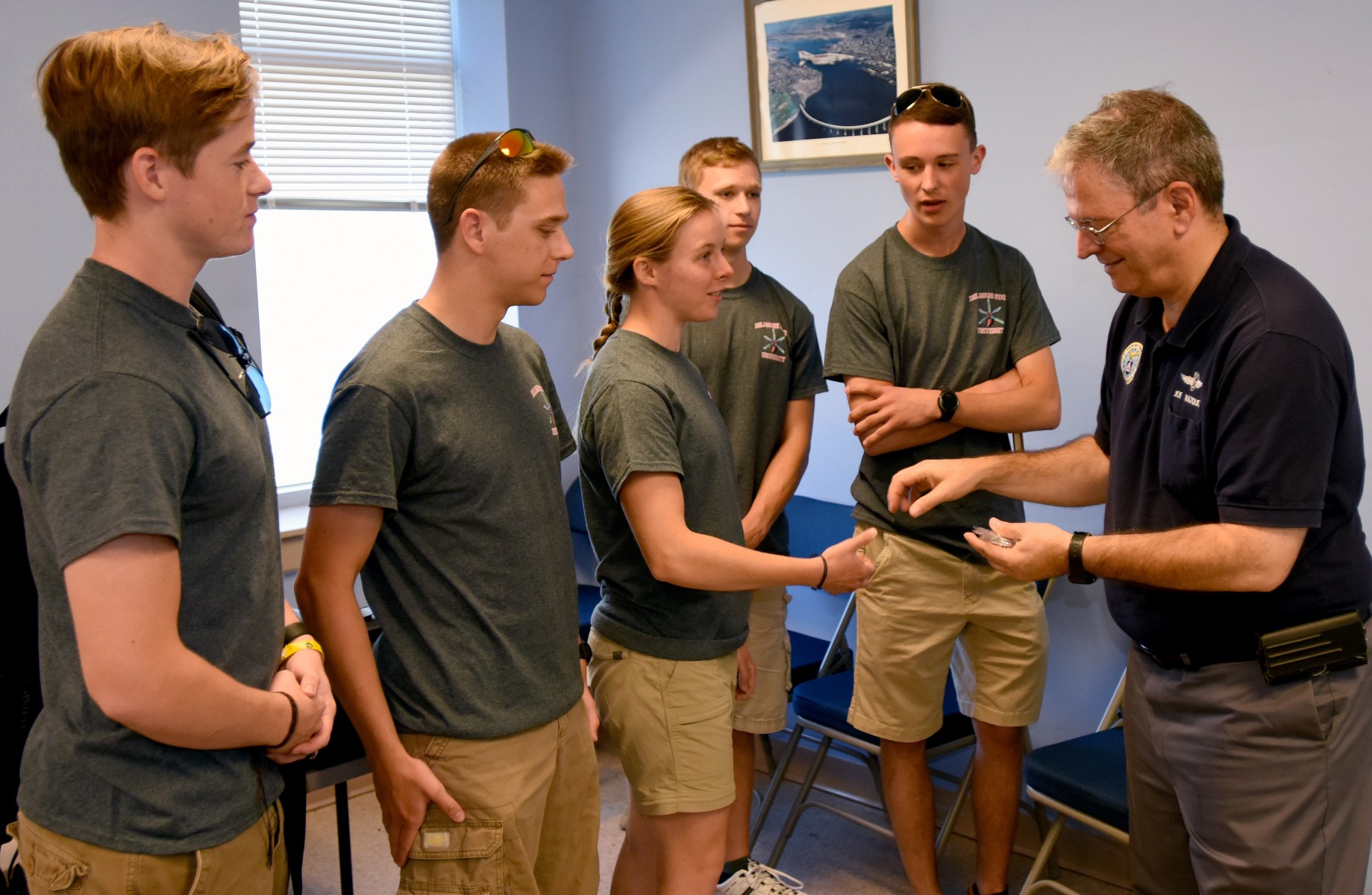
Residential Flight Scholarship Test Program Produces 5 New Private Pilots
Cadets from Fla., Md., Vt. Complete Training at Delaware St.
Five Civil Air Patrol cadets are now certified private single-engine pilots, thanks to Civil Air Patrol’s Residential Flight Scholarship program. The new pilots were pinned in a ceremony Wednesday at the Air Mobility Command Museum at Dover Air Force Base, Delaware.
Maj. Gen. Joe Vazquez, CAP national commander, said the test program was created last year to combat what he called “a crippling shortage of pilots and mechanics to maintain our national air transportation system.”
The test program’s five scholarships, valued at up to $12,000, each were awarded this spring. The cadet recipients used them for the five-week academy at Delaware State University.
The five new private pilots are:
Florida Wing
- Cadet 1st Lt. James D. Kidd, Cooper City Composite Squadron
Maryland Wing
- Cadet Maj. Wyatt Hartman, Glenn L. Martin Composite Squadron
- Cadet 2nd Lts. Duncan Campbell and Riley Campbell, Frederick Composite Squadron
Vermont Wing
- Cadet Capt. Erin Dundas, Rutland Composite Squadron
Cadets throughout CAP applied for the scholarships during the winter. To qualify for selection, they had to pass the written Federal Aviation Administration private pilot exam and complete multiple CAP cadet orientation flights. All cadets are offered up to five orientation flights in powered planes and in some cases five flights in gliders as well.
Created by CAP’s aviation industry liaison, Lt. Col. Leslie Vazquez, the scholarship initiative is inspired by a longtime Air Cadet League of Canada program that produces about 400 private pilots every year.

For CAP, “the goal for next year is to provide 60 private pilot scholarships with the help of industry and government sponsors,” Maj. Gen. Vazquez said. The scholarships, from $12,000-$16,000, would enable the recipients to undergo pilot training at universities with aviation programs like Delaware State, at flight schools and through CAP flight instructors.
The scholarship program is needed, Vazquez said, because “starting with regional airlines, the pilot shortage is now impacting both major airlines and the United States Air Force."
“Simply stated, not enough replacement aircrews are entering the career pipeline to replace those retiring,” he said. “CAP wants to be part of the solution by filling that pipeline at its lowest level, with new student pilots.”
Kidd, the Florida Wing cadet, hopes to use his pilot training to help him become a member of the U.S. Army’s 160th Special Operations Aviation Regiment Night Stalkers.
“I am very honored to be chosen for the scholarship,” he said. “There are many highly qualified cadets in Civil Air Patrol.
“Hopefully, the program will only grow from here. There are very promising young aviators out there working hard to follow their dreams.” Kidd said.
At Delaware State, he said, “I was amazed that each of us were given our own Piper Warrior airplane and private instructor to train us!”
Riley Campbell, younger of the two Campbell brothers who received scholarships, plans to serve as a rescue helicopter pilot in the U.S. Coast Guard.
As a scholarship recipient “I feel that I am extremely blessed, as I am no more qualified or deserving than any other cadet officer with the required aviation experience,” Campbell said. “I was simply chosen for my determination and raw drive, as the other four were.”
“In my five-year career (as a cadet) I've attended one flight academy, won two scholarships and received dozens of hours in CAP aircraft on my instructors’ own time, paying for only fuel,” he said. “Every goal I've achieved is due in great part to the CAP Cadet Program and the dedication of my instructors.”
Hartman, the highest-ranking cadet, said he hopes to fly for the Air National Guard – “hopefully heavies including the C-130, C-17 or C-5.”
The Delaware State academy, he said, “has already led me to new friends, fun experiences and mentors for the future.”
Along with the residential scholarship program, Vazquez also cited CAP’s cadet and aerospace education programs’ role in helping interest youth in aviation careers.
Given regular exposure to aviation throughout their years in CAP, the organization’s 24,000 cadets “are prime candidates for embarking on future aviation careers,” Vazquez said. In addition, CAP hosts 20 powered and glider solo flight academies every summer, training about 300 cadets for a first solo flight.
Through aerospace education programs geared toward the nation’s classrooms, CAP is involved in “motivating students as young as kindergarten to start a career in aviation,” he said.
Along with Maj. Gen. and Lt. Col. Vazquez, CAP officials present for the pinning ceremony included Cols. Dan Leclair, Northeast Region commander; John Knowles, Middle East Region commander; Michael Moyer, Delaware Wing commander, and Joseph Winter, Maryland Wing commander; and Lt. Col. John Henderson, Maryland Wing vice commander.



